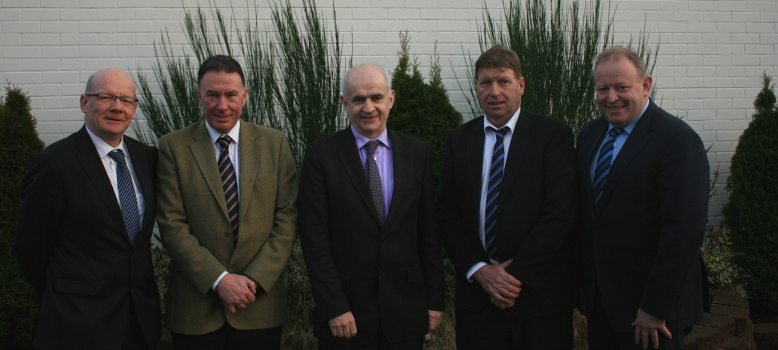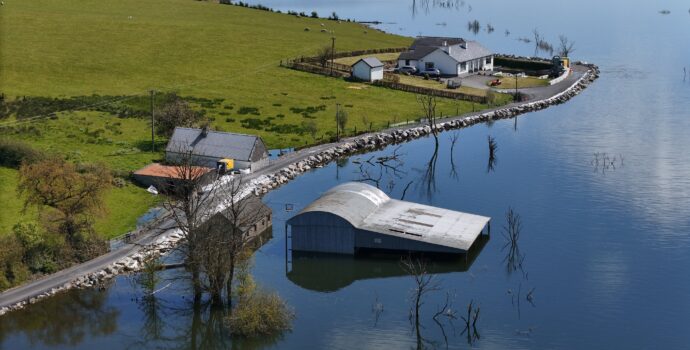IFA Meetings with Co-ops Focus on How They Will Support Farmers Through Difficult Months

IFA President Eddie Downey and National Dairy Committee Chairman Sean O’Leary have in recent weeks embarked in a series of meetings with all the main processing co-ops to examine with them in detail how they propose to support milk suppliers through likely difficult months in 2015, as poor market and milk prices coincide with the end of quotas.
Having already met with Glanbia Plc and GII, and the Kerry Group in recent weeks, the IFA delegation met this week with Aurivo Co-op and the Carbery Group (owned by the four West Cork Co-ops). Other co-ops will be met in January.
Eddie Downey said: “I am very clear that the long term outlook for the dairy sector is very positive, with strong global demand growth expected to outpace growth in output for the foreseeable future. I am however equally clear that there will be times just like we are experiencing right now, where economic, weather or political factors can disrupt the supply/demand balance and create extreme negative price volatility. The only way the Irish dairy sector will succeed in capitalising on the global market opportunities is if all stakeholders – co-ops, banks, input suppliers, advisory services, Government, and especially the EU – play their part in providing support for farmers to transition out of quotas with an improved ability to manage volatile incomes”.
Sean O’Leary added: “2015 will be tough on dairy farmers, with poor prices, superlevy fines and tax liabilities seriously disrupting normal cash flow. Investment plans may need to be reviewed, with elements potentially rescheduled”.
“While IFA is engaging with banks, Teagasc, Government and especially the EU Commission to address respectively flexible finance, quality business and budgeting advice, taxation and market supports in crises, we are clear that co-ops are the most important stakeholder of all. They are the purchaser of the farmers’ milk and therefore their primary source of income, they are often (rightly or wrongly) the first port of call of farmers for merchant credit, and in many cases their preferred supplier of inputs,” he said.
“We are exploring with each one of the co-ops we are meeting their plans to sustain the maximum possible milk price, to provide very keenly priced inputs and to deal with outstanding credit situations case by case. We are also mindful that they will need to provide a degree of advisory service to help farmers cope with low incomes in 2015. It is important that the industry would further help farmers manage risk by designing price hedging and/or fixed margin contract options on a voluntary basis. We are very clear that a cohesive strategy by co-ops will be crucial to keep dairy farmers afloat this coming year, in the knowledge that markets will recover, most likely before year end,” he concluded.




